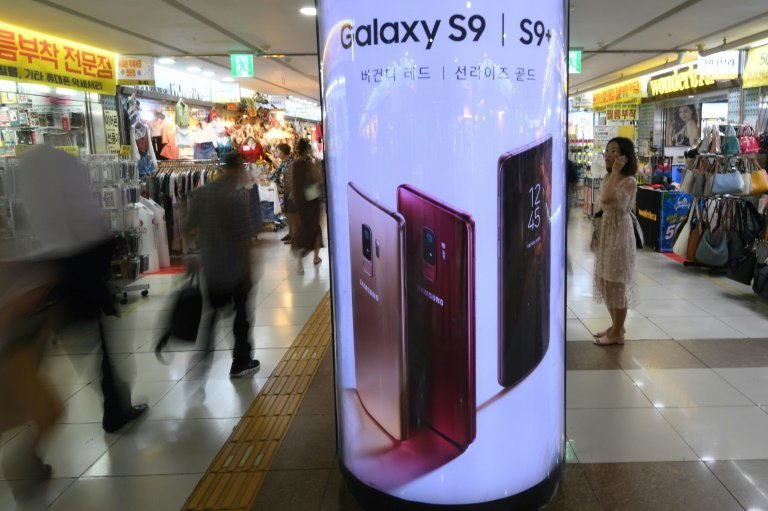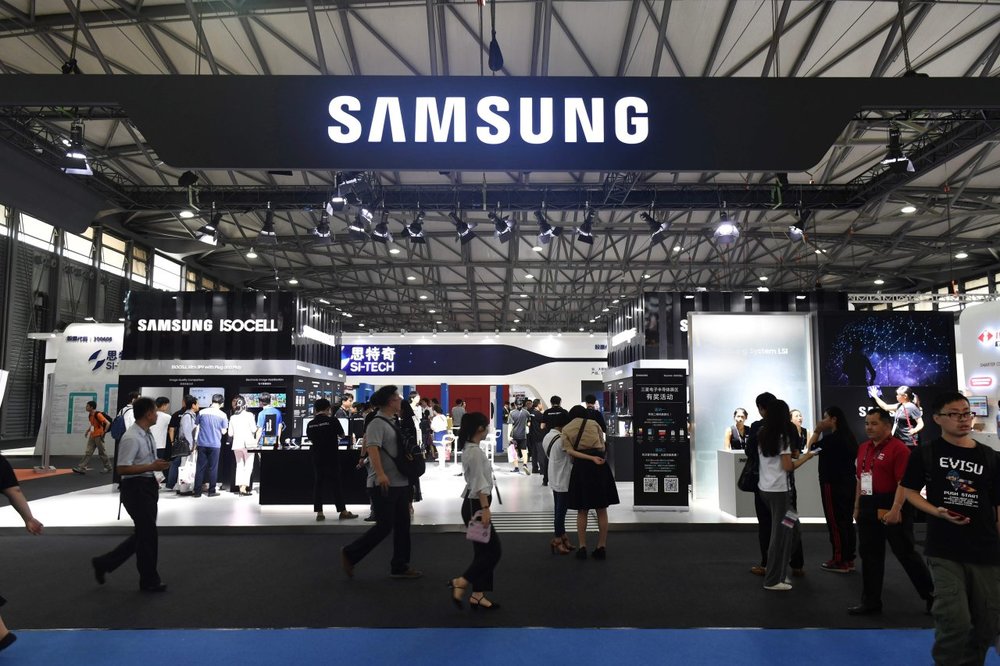Samsung is set to report record profits in the third quarter despite concerns over the diminishing growth of the semiconductor industry.
The South Korean electronics giant is expected to earn an estimated $58 billion in 2018 – and the company’s success is partly owed to its biggest competitor, Apple, who failed to wow the masses with its latest iPhone releases.

Samsung is set to report record profits of $15.6 billion in the third quarter despite concerns over the diminishing growth of the semiconductor industry
Samsung Profits from Apple
Apple and Samsung are the two biggest competitors in the battle of the smartphones, but the South Korean firm has an upper hand over its Silicon Valley nemesis when it comes to providing crucial components for the iPhone device.
Samsung is the leading supplier of memory chips in the world and it provides a number of key components for Apple’s devices. On Friday, the company said that it expects to rake in $15.6 billion worth in profits in just three months, making it Samsung’s most profitable quarter ever. The earnings have jumped over 20 per cent in comparison to the last year’s Q3.
Although the company didn’t give a detailed report of its earnings, analysts have confirmed that the boost in company’s profits have resulted from an increase in memory chip sales as well as stronger demand for Samsung’s display and electronics.
Daiwa Capital Markets’ analyst, SK Kim, says that Samsung is Apple’s number one supplier of flexible screens, and the latest range of iPhones has helped the South Korean company reach historic sales margins. Samsung’s display unit accounts for 10 per cent of the company profits in 2017, with almost 30 per cent of the sales made to Apple.
Decreasing Smartphone Demand

Despite promising figures, analysts aren’t sure if the company can maintain its profits in the future due to slowing demand for memory chips, a product that has contributed to Samsung’s record-breaking earning figures over the past year. Samsung’s impressive earnings forecast didn’t woo investors who are predicting that the company’s smartphone sales won’t live up to expectations in the third quarter.
Samsung currently owns the largest share in the smartphone industry but it won’t be able to maintain its dominance for long if demand for its products continues to slow down. Samsung is facing tremendous challenges due to increasing competition from Apple and Huawei. Both companies have taken huge strides in acquiring a larger market share by launching products on both ends of the price spectrum.
Until recently, Apple has been known to target the higher income consumer sector with its premium products, but the company recently launched a new line of affordable iPhones geared towards low-income consumers who have been discouraged from entering the luxury smartphone market due to high price points. Samsung won’t be revealing its earnings report until the end of October.
But Samsung’s year-long streak of record sales didn’t have much to do with its smartphones. The company made most of its profits from sales of consumer electronics, especially in Korea where the unusually hot summer drove the demand for Samsung air conditioners.

Samsung’s mobile division lost 22 per cent on its revenue in comparison to last year, but the decline was offset by a 33 per cent increase in revenue for its memory chip business
Lackluster Performance
Samsung is a leading supplier of consumer electronics in various markets. It is the biggest television and smartphone maker in the world, but it is also cashing in on memory chips. The company became the largest seller of semiconductors in the world last year, beating its competitor and long-time market leader, Intel, in terms of revenue.
The company’s smart phone demand is on a continuous downward trend despite the release of its latest flagship smartphone, Samsung Note 9. Its mobile division lost 22 per cent on its revenue in comparison to last year, but the decline was offset by a 33 per cent increase in revenue for its memory chip business.
Samsung introduced two new phones, Galaxy S9 and S9 Plus, in March, 2018, which had plenty of impressive specs including bigger screen and better camera and audio quality. But the devices weren’t a massive hit on the market. In fact, the second quarter marked the company’s worst performance since 2013, and costing Samsung a huge chunk of its market share.
In the last quarter, Samsung predicted lackluster performance in the smartphone department for the rest of 2018, citing pricing competition and market saturation as major obstacles in its growth.










